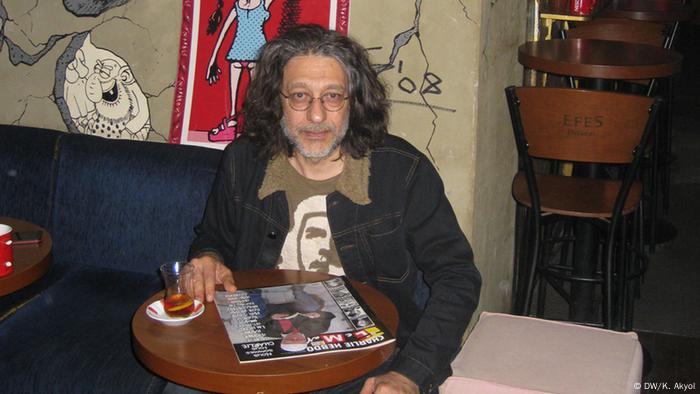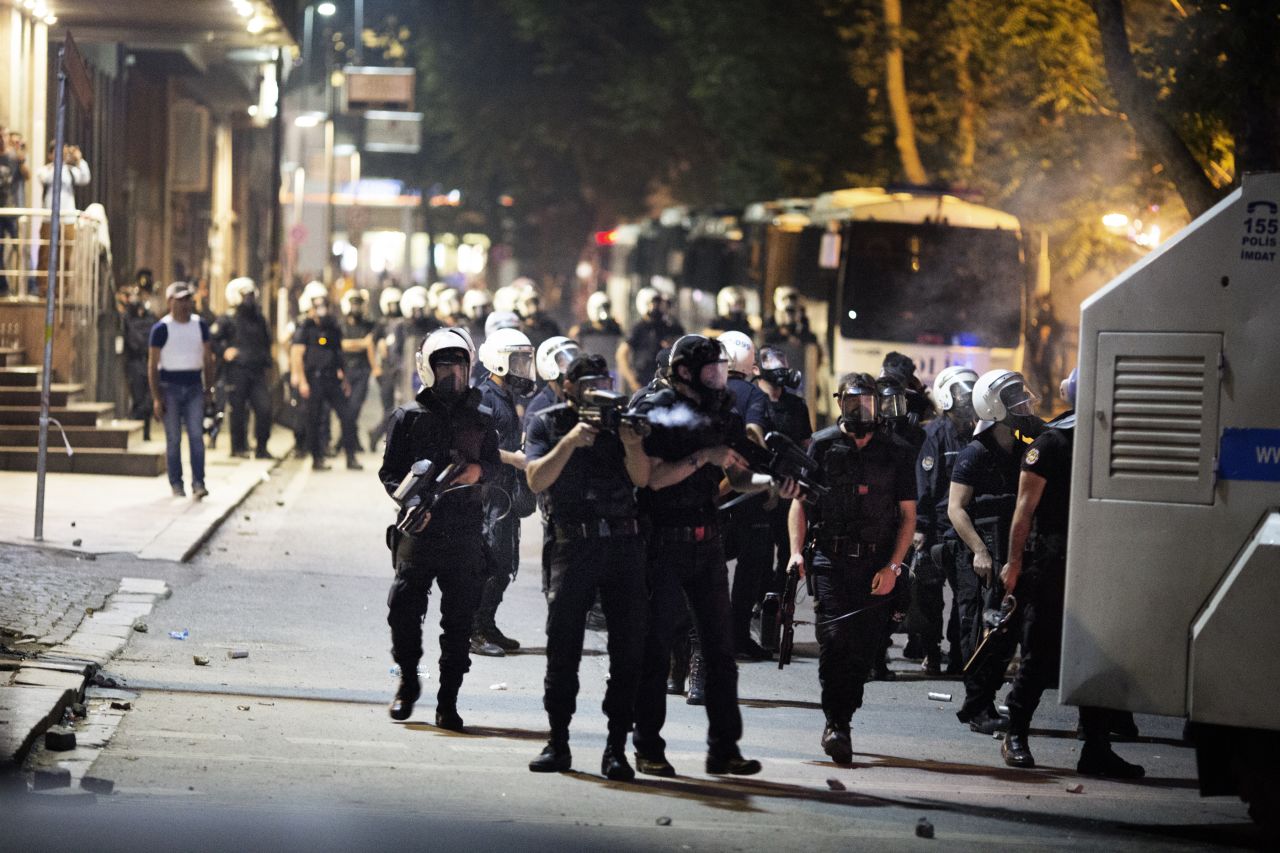The streets of Istanbul erupted in fury as demonstrators clashed with anti-riot police after allegations surfaced regarding a cartoon published by LeMan magazine, purportedly depicting the prophet Muhammad. The Turkish government"s swift response included rubber bullets and tear gas as police sought to disperse crowds protesting what many view as a blatant attack on freedom of expression.
Government Suppression Targets Artistic Expression
As reported by AFP, the Istanbul chief prosecutor"s office ordered the arrest of several editors from LeMan, claiming that the publication of the cartoon insulted religious values. Tuncay Akgun, LeMan"s editor-in-chief, vehemently denied the allegations, arguing that the image in question was misinterpreted. He explained that the cartoon does not depict Muhammad but rather a Muslim victim of Israeli bombardments, a significant distinction that underscores the need for nuanced discourse in a politically charged environment.
Historical Context of Censorship in Turkey
This incident is not an isolated one. According to the U.S. State Department, Turkey has a long-standing record of criminalizing expressions deemed insulting to religion. The enforcement of Article 216, which governs public respect for religious beliefs, has led to numerous cases of censorship and punishment for those who dare to challenge the status quo.

Turkish satirical magazine remembers Charlie Hebdo | Europe | News and ...
Government"s Justification for Censorship
Officials have rallied behind the narrative that freedom of expression should not come at the cost of disrespecting sacred values. Justice Minister Yilmaz Tunc stated on social media, "Disrespect towards our beliefs is never acceptable." This rhetoric is alarming, revealing a government willing to prioritize conformity over the essential democratic principle of free speech. The implications of such statements are profound, as they foster an environment where dissent is silenced, and marginalized voices are further oppressed.
The Role of Media in Democratic Societies
The backlash against LeMan illustrates the critical role media plays in democracy. By pushing boundaries with satire and commentary, publications like LeMan become essential in challenging dominant narratives and fostering public discourse. However, the Turkish government"s crackdown on the magazine represents a chilling reminder of the fragility of press freedom in the face of authoritarianism. As noted in a USCIRF report, the Turkish legal framework heavily restricts artistic expression, effectively undermining the crucial checks and balances inherent in a healthy democracy.

Police crackdown triggers anti-government riots | CNN
Potential Consequences for Society
The government"s aggressive stance against LeMan and its editorial staff signals a broader trend of intolerance towards dissent. With over 50 arrests reported, the implications of this crackdown extend beyond the magazine itself. It raises critical questions about the future of civil liberties in Turkey, particularly for journalists and artists who dare to challenge the narrative enforced by the state. As the government continues to equate artistic expression with blasphemy, the chilling effect on free speech will likely intensify, further marginalizing dissenting voices and stifling vital conversations about social justice and human rights.

![[Video] Anti-ICE Protester Pepper Sprayed as CBP Agents Disperse Crowd in Minneapolis](/_next/image?url=%2Fapi%2Fimage%2Fthumbnails%2Fthumbnail-1768260677127-y71sb7-thumbnail.jpg&w=3840&q=75)

![[Video] Several injured as U-Haul truck drives through Iranian protestors in Los Angeles](/_next/image?url=%2Fapi%2Fimage%2Fthumbnails%2Fthumbnail-1768176682028-q95y6j-thumbnail.jpg&w=3840&q=75)
![[Video] Scuffle breaks out between Trump supporters and Anti-ICE protesters in Times Square](/_next/image?url=%2Fapi%2Fimage%2Fthumbnails%2Fthumbnail-1768165958203-hgcgb-thumbnail.jpg&w=3840&q=75)


![[Video] Gunfire between Iraqi security forces and Sadr militias in Baghdad](/_next/image?url=%2Fapi%2Fimage%2Fthumbnails%2Fthumbnail-1768343508874-4redb-thumbnail.jpg&w=3840&q=75)
